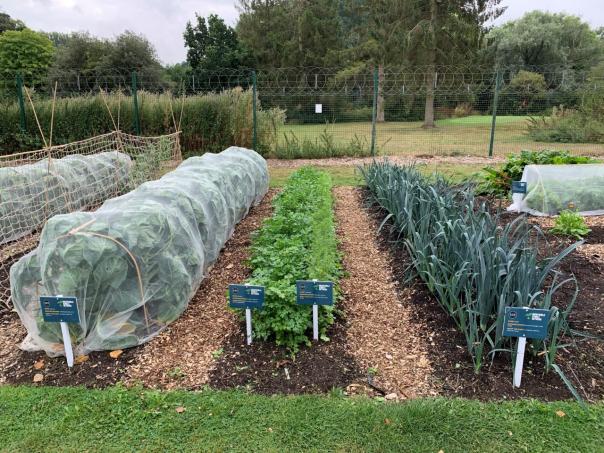
The one-acre plot is being used to produce a range of vegetables and herbs, supporting the company’s focus on increasing the volume and diversity of plants on its menus. Working with the client, the ESS team has converted an area of previously unused land into a hive growing activity.
The crops grown include tomatoes, courgettes, beans, leeks, spring onions, beetroots and pumpkins. The ingredients produced are being used by chefs in a new ESS outlet dedicated to promoting sustainability and wellbeing.
ESS is in the process of obtaining Soil Association organic certification for the garden, demonstrating its commitment to working with nature.
Dr Vincent Walsh, circular & regenerative system designer, supported the project and commented: “This project clearly demonstrates how you can grow a wide range of crops for culinary use on a small patch of land, while also being sustainable. The fact ESS is also using this plot as the foundation for a range of other environmental projects, including zero-waste systems, is fantastic.”
The Defence Academy delivers world-class professional defence and security education to students from the Ministry of Defence, wider Government, UK industry and overseas. Its role in training future leaders makes it an ‘ideal establishment’ to model this innovative approach to addressing some of the environmental challenges around food supply.
Bob Gray, managing director – ESS Defence, Marine and Aerospace, added: “Introducing the organic garden at the Defence Academy is an exciting step for us. We’re passionate about great food and the opportunity to grow high quality fresh ingredients on site is one that the team has embraced. The work also supports our Net Zero commitments, encouraging the use of locally sourced products and eliminating delivery mileage.”